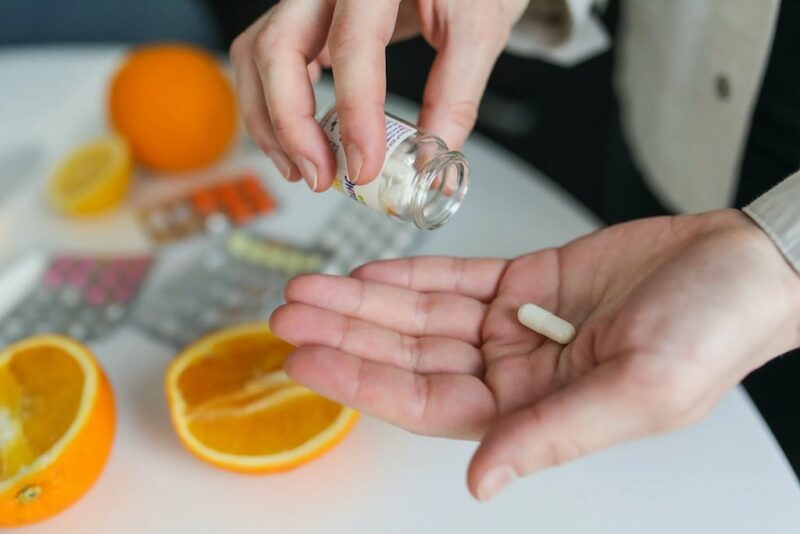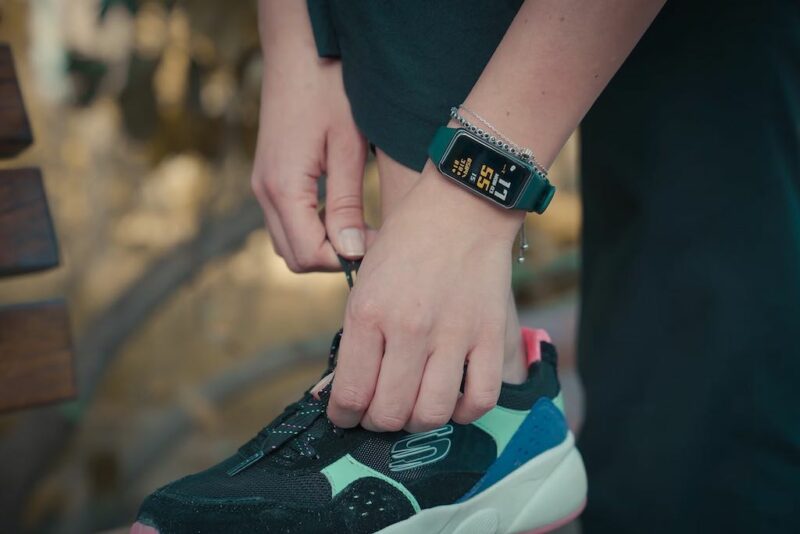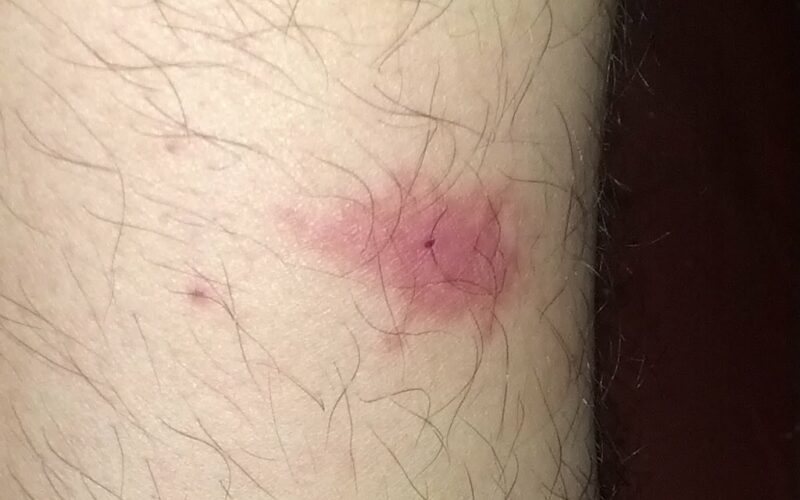Krill oil, like fish oil, is loaded with Omega-3 fatty acids. These good fats can help to bring down your cholesterol, triglycerides, and blood sugar levels, which can reduce your risk of heart disease and atherosclerosis. Plus, they can help to alleviate pain related to rheumatoid arthritis and osteoarthritis.
Some studies suggest that krill oil might be even more effective than fish oil in certain areas. In this article, we’ll dive deep into the benefits of krill oil, its potential side effects, and recommend 3 top-notch krill oil supplements.
Benefits and Researches
Dry Eye Syndrome
Your eyes rely on tear glands to stay moist, and if they aren’t producing enough tears, it can lead to dry eye syndrome. This might make your vision blurry, turn your eyes red, or give you a feeling like there’s something in your eye.

A 2017 study found that people with dry eye syndrome saw an improvement in their symptoms after taking krill oil. Taking 1,500mg of krill oil daily helped to increase tear stability and reduce symptoms like eye redness and swelling.[1] Trusted Website ScienceDirect.com is a trusted database of scientific and medical publications. Open the link →
Lowering Cholesterol
High total cholesterol and high levels of “bad” low-density lipoprotein (LDL) cholesterol are significant risk factors for heart disease and stroke. Besides prescription medications to lower cholesterol, krill oil can also be a viable option.
A 2017 study found that krill oil can reduce total cholesterol levels in the blood. Additionally, it can decrease “bad” LDL cholesterol while increasing “good” high-density lipoprotein (HDL) cholesterol levels.[2]
Reducing Triglycerides
Triglycerides, also known as triacylglycerides, are a type of fat found in your blood, and ideal levels are below 150mg/dl or 1.7mmol/L. Like total cholesterol and LDL cholesterol levels, high triglyceride levels are also a risk factor for heart disease and stroke.
Studies show that taking krill oil twice daily for 12 weeks can reduce triglyceride levels.[3] Trusted Website PubMed is a data base from US National Institutes of Health. It’s a trusted source of health and medical information. Open the link →
A 2013 study found that taking 1-3g of krill oil daily was more effective at reducing total cholesterol and triglyceride levels than the same dose of fish oil.[4]
Another study in 2016 with 330 participants also concluded that daily supplementation with krill oil for 12 weeks effectively managed triglyceride levels.[5]
Easing Arthritis Pain
Research has found that krill oil can significantly reduce markers of inflammation and improve pain, stiffness, and function in patients with rheumatoid arthritis (RA) or osteoarthritis.
A 2007 study showed that taking 300mg of krill oil daily could significantly reduce inflammation and alleviate symptoms of arthritis.[6] Trusted Website PubMed is a data base from US National Institutes of Health. It’s a trusted source of health and medical information. Open the link →

In 2016, a double-blind placebo-controlled trial with patients experiencing mild knee pain showed that taking 2,000mg of krill oil daily for 30 days significantly reduced pain during sleep and standing, and increased the range of motion in the knee.[7] Trusted Website PubMed is a data base from US National Institutes of Health. It’s a trusted source of health and medical information. Open the link →
Krill oil has anti-inflammatory properties. In animal studies, mice with arthritis showed reduced swelling and fewer inflammatory cells in their joints after taking krill oil.[8] Trusted Website NCBI, US National Center for Biotechnology Information, is a trusted source of biotechnology and biomedicine information. Open the link →
Improving Premenstrual Syndrome (PMS)
PMS refers to a range of physical and emotional symptoms that some women experience in the latter half of their menstrual cycle. Studies have found that Omega-3s in krill oil can help reduce menstrual pain and symptoms of PMS, and in some cases, even reduce the need for pain medication.

Research suggests that taking 2g of krill oil daily can help lower symptoms of PMS such as depression, anxiety, stress, irritability, lack of focus, fatigue, sleep disturbances, headaches, weight gain, and breast tenderness.[9] Trusted Website PubMed is a data base from US National Institutes of Health. It’s a trusted source of health and medical information. Open the link →
In a trial comparing the effects of krill oil and fish oil on PMS, researchers found that both supplements significantly improved symptoms, but krill oil was more effective at reducing the need for pain medication.[10] Trusted Website PubMed is a data base from US National Institutes of Health. It’s a trusted source of health and medical information. Open the link →
Side Effects and Precautions
The most common side effects of krill oil include heartburn, decreased appetite, diarrhea, and nausea. For most adults, taking krill oil orally is safe for up to 3 months. However, certain groups of people should exercise caution:
- Pregnant and breastfeeding women should avoid krill oil as there isn’t enough information on its safety during these times.
- People with bleeding disorders should avoid krill oil as it could slow blood clotting, potentially increasing the risk of bruising and bleeding.
- Those with seafood allergies should steer clear of krill oil.
- Surgery patients should stop taking krill oil at least 2 weeks before a scheduled surgery, as it might increase the risk of bleeding during and after the procedure.
Drug Interactions
- Blood Thinners/Antiplatelet Medications: This category includes common drugs like Aspirin, Plavix, Voltaren, Cataflam, Advil, Motrin, Anaprox, Naprosyn, Fragmin, Lovenox, Heparin, and Coumadin, among others.
- Orlistat (Xennical, Alli): This is a weight-loss drug that works by preventing the absorption of fat from your diet in the intestines. However, it might also block the absorption of krill oil, so make sure to take them at least 2 hours apart.
Krill Oil vs. Fish Oil
There haven’t been many studies comparing krill oil to fish oil. Some research suggests that krill oil might be more stable, have less of a fishy aftertaste, and be better absorbed by the human body than fish oil. However, there’s no current evidence to prove that better absorption equals bigger health benefits.
Krill Oil
Primarily extracted from Antarctic krill, sourced from the vast open oceans, though their population has declined by 80% since the 1970s.[11]
Omega-3 fatty acids in krill oil are in phospholipid form, which may offer better absorption compared to fish oil.[12] Trusted Website PubMed is a data base from US National Institutes of Health. It’s a trusted source of health and medical information. Open the link → Additionally, krill oil contains at least two known antioxidants — astaxanthin and tocopherol (a form of vitamin E), contributing to its stability.
Fish Oil
Extracted from cold-water oily fish like salmon, mackerel, sardines, anchovies, and herring. Some companies also source fish oil from farmed fish. Concerns over contaminants such as mercury, dioxins, and PCBs make it crucial to buy from reputable manufacturers with stringent quality controls.
Omega-3 fatty acids in fish oil are in triglyceride form. Fish oil is generally unstable and prone to oxidation. Even with added antioxidants, maintaining quality within the shelf life remains a challenge. Oxidized fish oil could actually exacerbate inflammation. Therefore, don’t buy in bulk, refrigerate after opening, and stop using if you notice any changes in color, smell, or taste, which could indicate spoilage.[13] Trusted Website NCBI, US National Center for Biotechnology Information, is a trusted source of biotechnology and biomedicine information. Open the link →
Sports Research: Clinically-Proven Krill Oil
Sports Research Krill Oil softgels contain 1,000 mg of EPA and DHA per serving, sourced from sustainably harvested Antarctic krill. Each bottle has 60 softgels, enough for two months, with a recommended dose of one per day. They’re easy to swallow, free from fishy aftertaste, non-GMO, gluten-free, and meet the IKOS 5-star certification standards. Manufactured in a cGMP certified facility in the USA and third-party tested for quality and safety.
5,923 Reviews
1,000 mg/60 softgels; recommended dose: 1 per day.
All prices & ratings are current as of the time of writing
This krill oil is free from soy and impurities, featuring high-quality, sustainable Superba2 brand krill oil—one of the few branded krill oil products on the market. Superba2 krill are certified by the Marine Stewardship Council (MSC), ensuring sustainable harvesting practices. Moreover, clinical studies have verified that this krill oil significantly increases omega-3 levels in the blood.[14]
Sports Research Krill Oil undergoes testing by IKOS, a third-party testing facility, verifying the nutritional content and antioxidant levels, ingredient quality, contaminant levels, and product freshness. Each serving contains 400 mg of phospholipids, with higher phospholipid content aiding more effective cell membrane absorption of omega-3 fatty acids.[15] Trusted Website PubMed is a data base from US National Institutes of Health. It’s a trusted source of health and medical information. Open the link →
Established in 1980 and based in California, USA, Sports Research is dedicated to providing high-quality natural and organic supplements for athletes and fitness enthusiasts. Their star products include MCT oil, collagen peptides, enzymes, and vitamins, garnering a strong reputation not just among fitness enthusiasts but also among the general consumer base.
Pros
- Packed with high-quality, clinically proven Superba2 krill oil
- Certified by MSC and IKOS
- Undergoes third-party testing
Cons
- Lower total Omega-3 content
- Some customers report leaking capsules
Ingredients and Daily Value (DV)
| Ingredients | Per Serving (1 capsule) | Daily Value % |
|---|---|---|
| Calories | 10 | |
| Total Fat | 1g | 1% * |
| Cholesterol | 20mg | 7% |
| Chloride | 50mg | 9% |
| Krill Oil | 1000mg | N/A |
| Omega-3 Fatty Acids | 240mg | N/A |
| EPA | 136mg | N/A |
| DHA | 60mg | N/A |
| Phospholipids | 400mg | N/A |
| Astaxanthin | 100mcg | N/A |
* Daily Value percentages are based on a 2,000 calorie diet.
N/A = Daily Value (DV) not established.
Viva Naturals: Krill Oil with a High Dose of Astaxanthin
Viva Naturals Antarctic Krill Oil is one of the few krill oil supplements on the market that boasts a high content of astaxanthin, with 1.6mg per 2 capsules. The product has undergone third-party testing by IKOS to ensure its quality and ingredient content.
This krill oil falls into the mid-to-high price range. Apart from Antarctic krill oil and the gelatin needed to create the softgel, no additional ingredients are added to the product.
99 Reviews
1,250mg/60 capsules; recommended daily intake is 2 capsules.
According to the product label, every 2 capsules contain 1,250mg of krill oil, which includes 255mg of EPA and DHA, 75mg of other ω-3 fatty acids, and 1600 micrograms of astaxanthin.
From a health supplement perspective, Omega-3 fatty acids are beneficial for cardiovascular health, while astaxanthin has garnered attention for its powerful antioxidant properties.
However, different countries and institutions have varying recommendations on safe intake levels for astaxanthin. The European Food Safety Authority suggests that in addition to dietary intake, an additional daily intake of up to 8mg of astaxanthin from supplements is safe for most people.
Pros
- High dose of astaxanthin and ω-3 fatty acids
- Third-party tested, ensuring quality
- Contains only sustainably sourced Antarctic krill oil and gelatin needed for the capsule
Cons
- Higher price point
Ingredients and Daily Value (DV)
| Ingredients | Per Serving (2 capsules) | Daily Value % |
|---|---|---|
| Calories | 10 | |
| Total Fat | 1g | 1% * |
| Krill Oil | 1,250mg | N/A |
| Total Omega-3 Fatty Acids | 330mg | N/A |
| DHA | 90mg | N/A |
| EPA | 165mg | N/A |
| Phospholipids | 575mg | N/A |
| Esterified Astaxanthin | 1.6mg | N/A |
* Daily Value percentages based on a 2,000 calorie diet.
N/A = Daily Value (DV) not established.
Onnit: Krill Oil with Sports Certification
Onnit Antarctic Krill Oil is a rigorously certified sports health product, unique for its pure ingredients and sustainable sourcing. It’s gluten-free, soy-free, and non-GMO, ensuring cleanliness and safety. The main ingredients are krill oil and the softgel components, with a small amount of ethyl vanillin for flavoring.
Most critically, Onnit Krill Oil has achieved independent Informed Sport certification, meaning every batch of the product is tested for over 250 substances banned by sports organizations, and it’s produced in an environment with the proper sports nutrition quality systems. This is a significant safeguard for athletes striving for peak performance.
49 Reviews
Also at iHerb
1,000mg per 60 capsules; available for subscription; recommended dose is 1 capsule daily.
The packaging clearly states that the krill oil is sourced from Antarctic waters and obtained through sustainable fishing practices, earning it the Friend of the Sea certification.
In terms of nutrition, each serving provides 240mg of Omega-3 fatty acids and 400mg of phospholipids to promote absorption by the body.
While its Omega-3 content is slightly below the recommended minimum, its sustainable harvesting features and independent sports certification make this product stand out, offering a reliable option for consumers pursuing a healthy lifestyle.
Pros
- Simple ingredients
- Certified by third-party testing through Informed Sport
- Tests for banned substances
- Sustainably sourced
Cons
- Omega-3 fatty acid content is below the recommended minimum
Ingredients and Daily Value (DV):
| Ingredient | Amount per Serving | % Daily Value |
|---|---|---|
| Calories | 10 | |
| Total Fat | 1g | 1%* |
| Krill Oil | 1g | N/A |
| Phospholipids | 450mg | N/A |
| Omega-3 Fatty Acids | 240mg | N/A |
| EPA | 130mg | N/A |
| DHA | 60mg | N/A |
| Astaxanthin | 200mcg | N/A |
* Daily Value percentages based on a 2,000 calorie diet.
N/A = Daily Value (DV) not established.
Disclosure: We are an Amazon Associate. Some links on this website are affiliate links, which means we may earn a commission or receive a referral fee when you sign up or make a purchase through those links.




















Leave a Reply